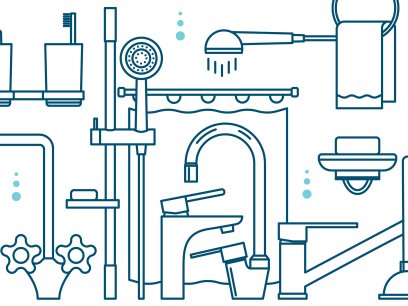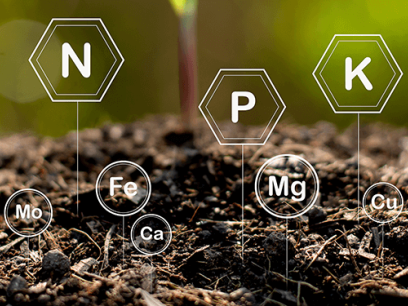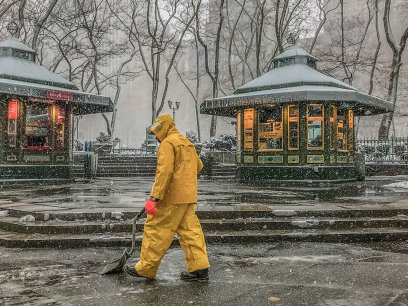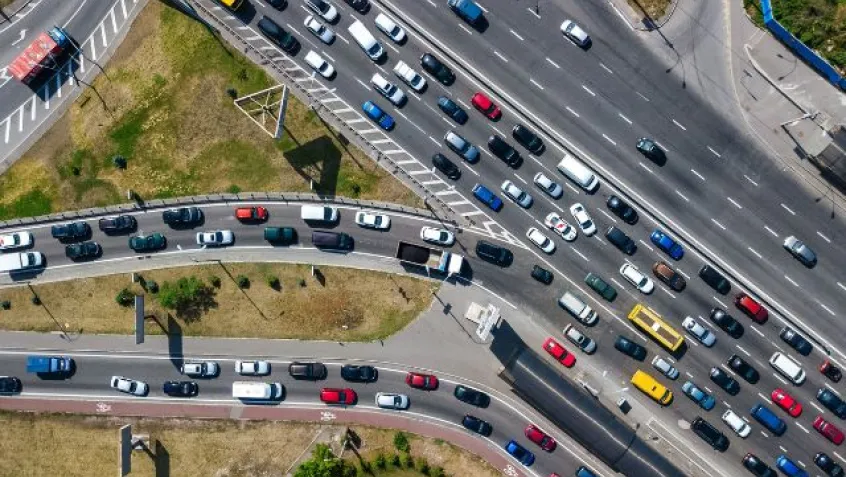
Traveling during the holiday season is a tradition for many families, with millions of Americans hitting the road to celebrate with loved ones. In 2022, Thanksgiving weekend alone saw an estimated 54.6 million travelers, with each journeying 50 miles or more from home.
The Carbon Cost of Holiday Travel
In 2021, transportation was responsible for 28% of all US greenhouse gas emissions, more than any other economic sector. These emissions largely stem from burning fossil fuels, especially petroleum-based fuels like gasoline and diesel, which power our cars, trucks, ships, trains, and planes.
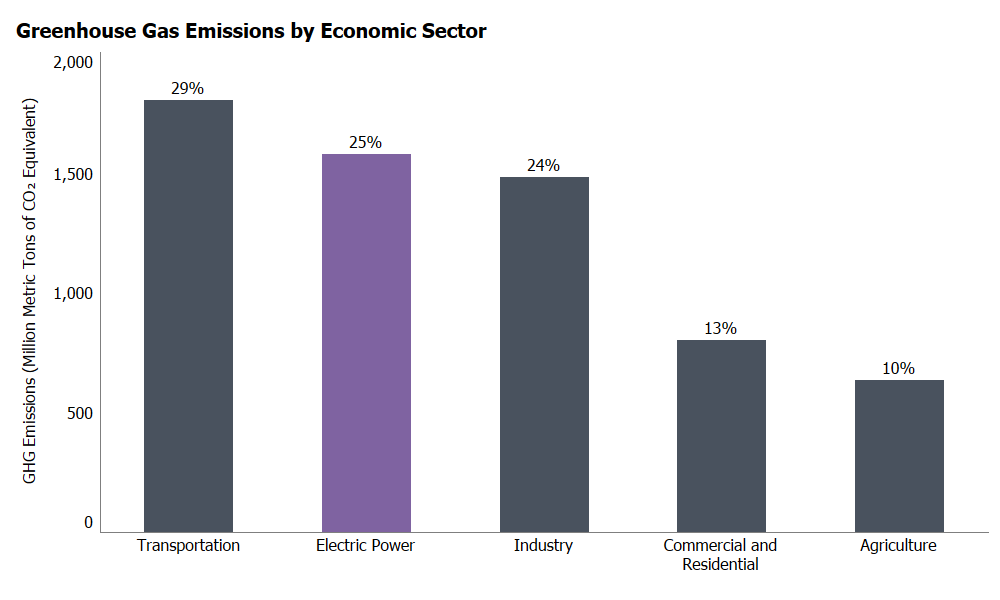
Holiday Travel Trends: Progress or Peril
Holiday travel is marked by increased traffic jams. Nationwide, 90% of holiday travelers will drive to their destinations. This traffic adds to the already large amount of time Americans spend in traffic throughout the year. US drivers lost over 50 hours to congestion in 2022, about an hour each week. That's an increase of 15 hours lost to congestion compared to 2021. All that time wasted in traffic jams hits wallets hard, costing the average American driver $869 in lost time.
While traffic congestion is ubiquitous in major cities around the world, American cities stand out among the crowd. Of the top 10 global cities ranked by hours lost to congestion in 2022, five of them are in the US. Drivers in Chicago, Boston, New York City, Philadelphia, and Miami were delayed over 100 hours in 2022.
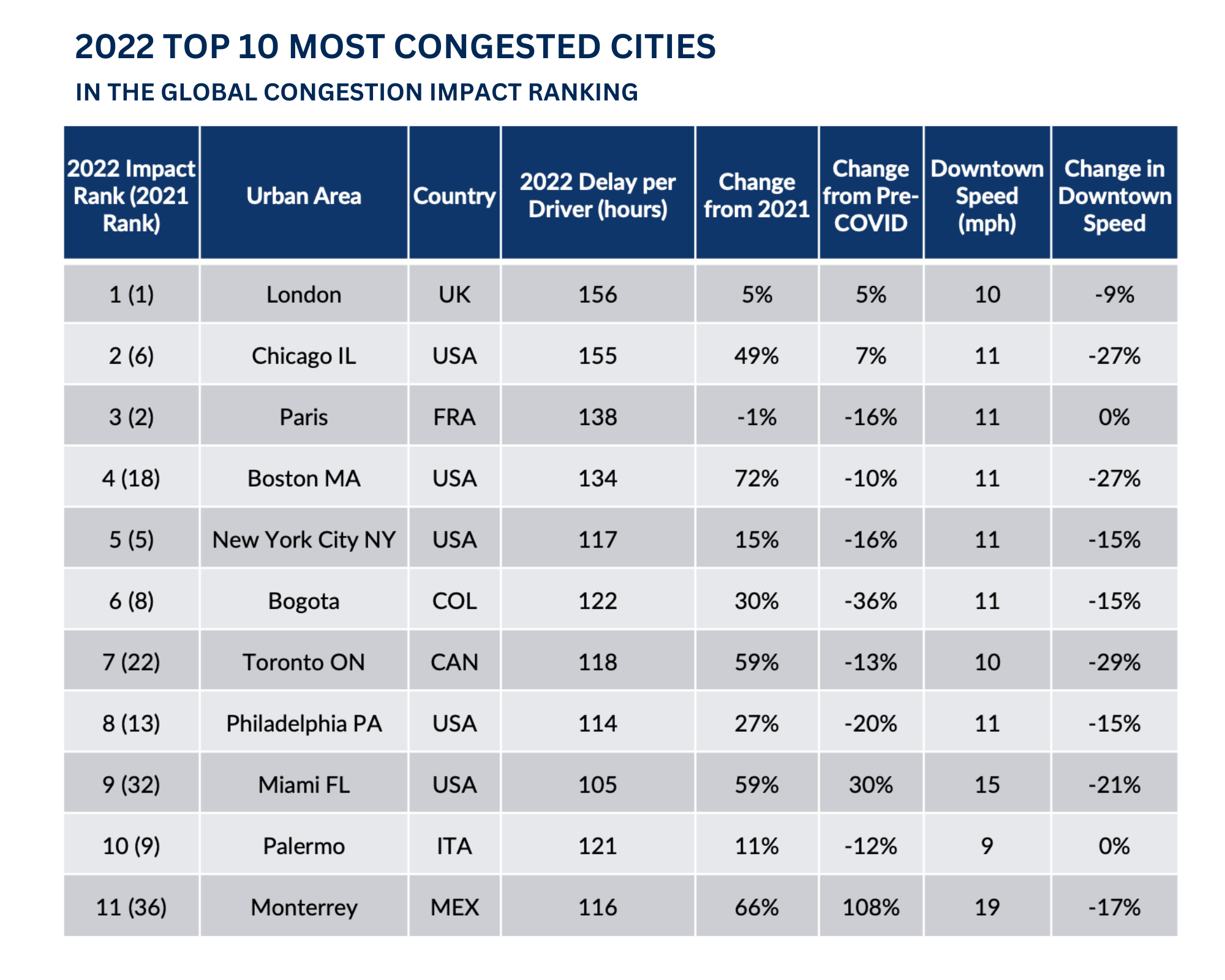
Increased holiday traffic worsens the already significant amount of fossil fuels consumed by US transportation throughout the year. However, this doesn’t mean you shouldn’t spend the holidays with your loved ones. This year, let your travel habits help curb traffic congestion.
Tips for Environmentally Friendly Holiday Travel
Traveling in an eco-conscious manner not only benefits the environment, it can also save you money. Here are some actionable tips from the US Department of Energy to ensure your journey is both efficient and environmentally friendly.
Find the Best Time to Travel
Optimizing your travel schedule can make a significant difference in both fuel consumption and emissions. The following chart pinpoints the ideal times to set out on your Thanksgiving journey to avoid peak traffic, reduce your carbon footprint, and save on fuel costs.
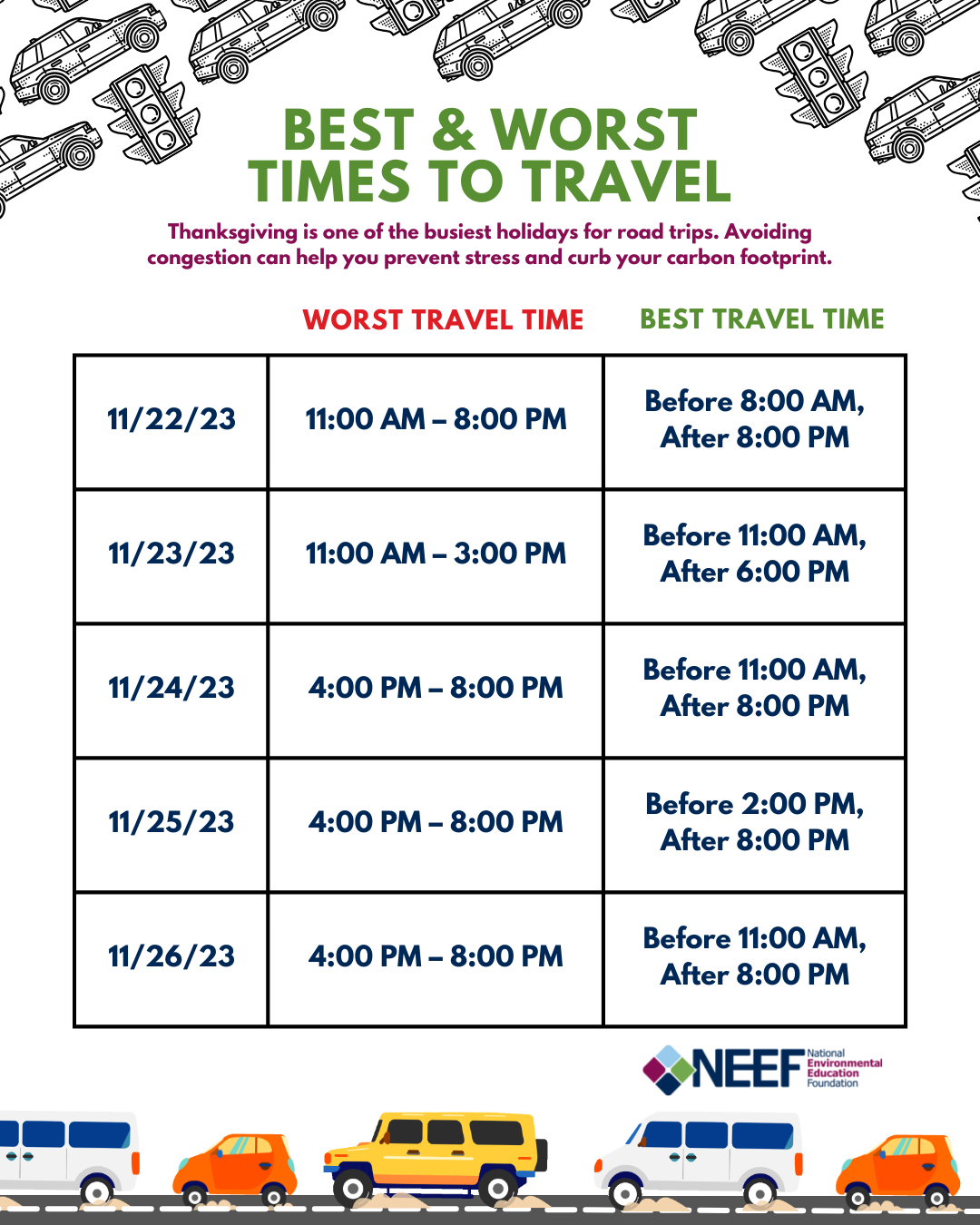
Avoid Aggressive Driving
Every 5 mph above 50 mph costs you an extra $0.22 per gallon of gasoline. Similarly, rapid acceleration and hard braking can lower your highway gas mileage by up to 30%.
Pack Smart
An extra 100 pounds in your car can reduce your MPG (miles per gallon) by about 1% or increase costs by $0.03 per gallon. Avoiding roof racks is another cost-saving technique—piling your luggage on the roof increases wind resistance and decreases fuel economy up to 25%. Pack only what you can fit inside the car or trunk.
Keep Your Vehicle in Check
Before your trip, make sure your tires are inflated to the recommended pressure in your owner’s manual. Proper tire inflation can improve gas mileage. Also, don’t forget to turn off your engine while parked. Idling your car for even 10 seconds uses more fuel and produces more emissions than stopping and restarting your engine does.
The Future of Environmentally Friendly Holiday Travel
While simple changes in driving habits can lead to noticeable benefits, it's important to think about long-term solutions for sustainable travel and lifestyle. As we become more conscious of our environmental impact, we can consider broader shifts in our transportation choices.
Transitioning from smaller, everyday practices can pave the way for more significant changes, like adopting new vehicle technologies. Let's look at some advanced strategies that not only elevate our commitment to the environment but also present future-forward solutions for holiday travel.
Going Beyond the Basics
The type of vehicle you purchase and drive can significantly influence your carbon footprint. To fight this, and with the added benefit of electricity now costing less than gasoline, Americans are increasingly turning to electric vehicles (EVs). Today, deciding if switching to an EV is right for you can be made simple with resources such as FuelEconomy.gov’s Find a Car tool.
Carpooling is another smart choice for eco-conscious travelers. By sharing rides, you not only reduce the number of vehicles on the road, decreasing traffic congestion and emissions, but also split travel costs. This makes it a win-win for both the environment and your wallet.
Learn More About Reducing Your Energy Consumption
While our journey on the road is one aspect of our carbon footprint, the trail of energy doesn't end once we park our cars and step into our homes. The same mindfulness we apply to travel can be mirrored in our living spaces. From the hum of our refrigerators to the glow of our screens, every corner of our home offers an opportunity to be “energy wise.”
Check out the following NEEF resources to see how you can reduce your household energy consumption.
- Efficiency with NEEF and NHL Green: Ever wondered about the energy consumption of your household electronics when they're idle? With the NEEF and NHL Green energy audit toolkit, you can discover the energy draw of your devices and create a personalized plan to reduce it. By making small changes, you can play a significant role in reducing greenhouse gas emissions, just like the National Hockey League and its partners.
- NBA Green Energy All-Stars: Want to slam dunk your energy bills and reduce your carbon footprint? The NBA Green Energy All-Star campaign, in partnership with NEEF, offers actionable energy-saving tips that can make a difference in your daily life. With insights from NBA legends like Bill Walton and Dikembe Mutombo, you'll learn practical ways to optimize your home's energy efficiency. It's a win for you and the planet.
